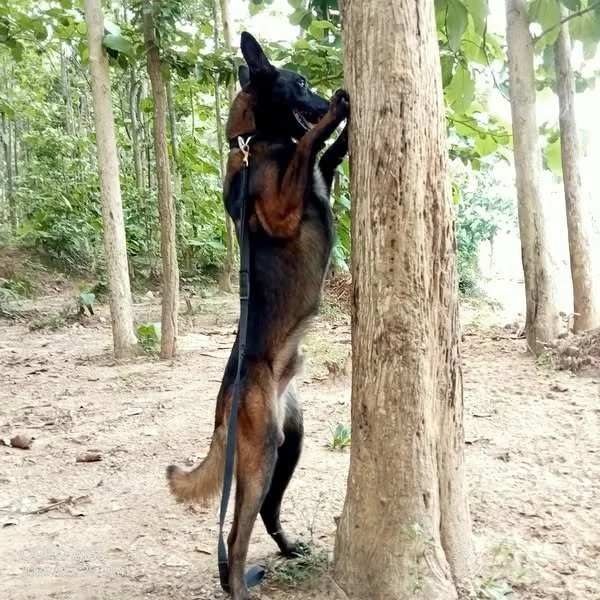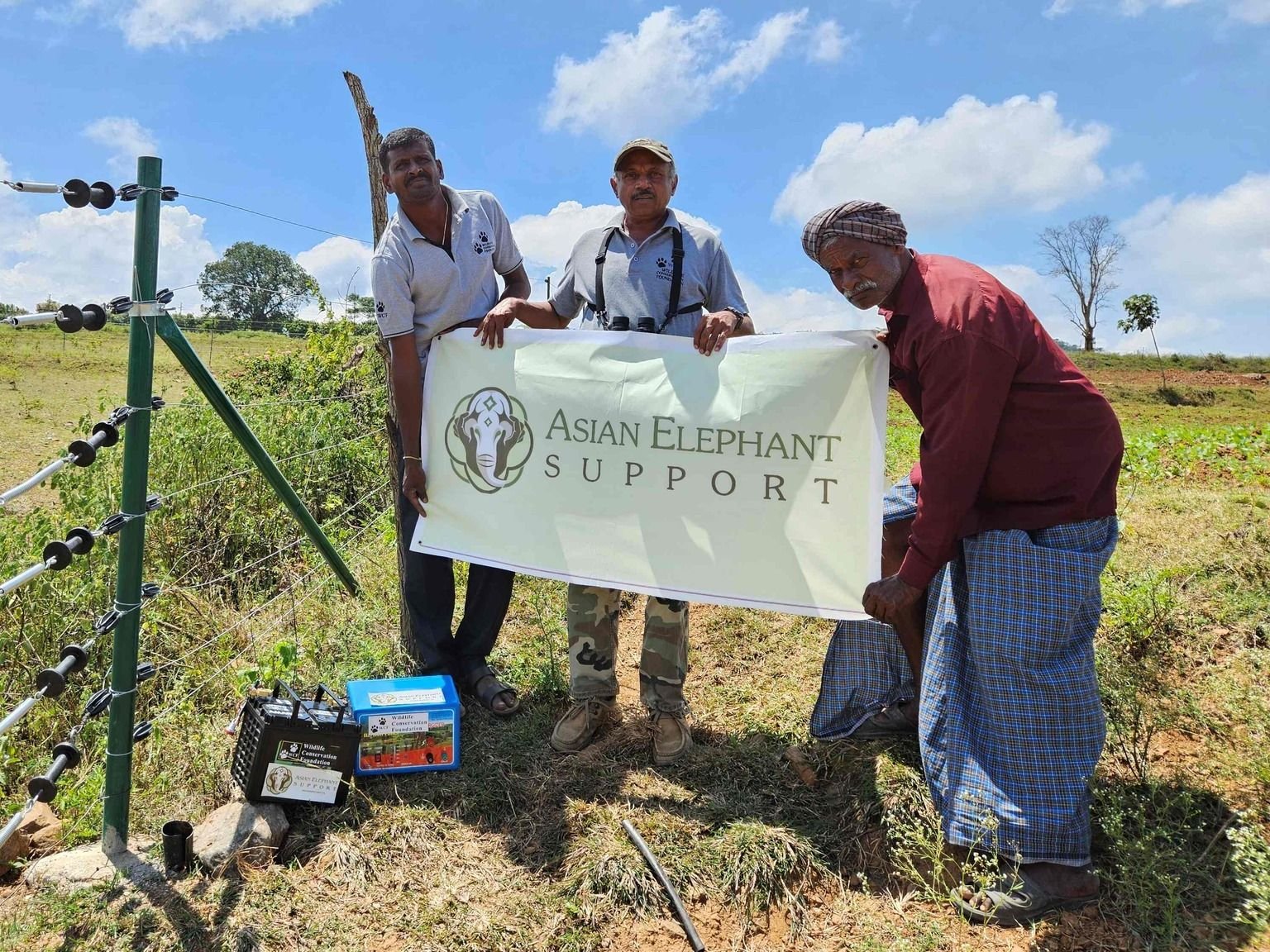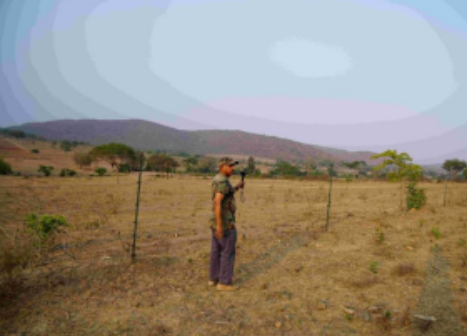A K9 assistant and his handler were stationed at Kaziranga National Park (KNP) in May 2025. On 27th May 2025, at around 6:20 AM, the Divisional Forest Officer alerted the K9 unit about suspected poacher activity in the area. Given the urgency of the situation, a forest patrol team, along with a K9 assistant and his handler, was immediately deployed to the site to investigate and secure the area. Upon arrival, the K9 assistant was tasked with tracking potential poacher presence.
The K9 assistant meticulously searched the area and picked up a suspicious scent trail. Following the trail, the K9 assistant led the team toward where a piece of cloth suspected of being linked to poachers was recovered. This find indicated recent human movement in the vicinity, suggesting that poachers had been scouting or attempting to enter the area. The operation was not without risk, as the patrol team and the K9 assistant encountered multiple rhinos during their search, adding to the challenges of navigating the terrain safely. Despite this, the K9 assistant continued tracking for approximately 2 kilometers beyond the initial discovery point, ensuring that no further threats or poacher traces remained in the vicinity.
The successful operation not only resulted in recovering a possible clue connected to the suspected poachers but also demonstrated the deterrent effect of the K9 unit’s presence in vulnerable zones of the park. By tracking and securing the area, the K9 assistant played a crucial role in preventing potential wildlife crime. This case highlights the significance of deploying trained K9 units in high-risk areas to strengthen anti-poaching patrols and enhance wildlife protection.
Help us support the care and training of these hardworking and talented dogs and trainers!
We are grateful for the efforts of these teams in India. Their efforts and successes are helping to protect wildlife of all kinds in India.
Thank you to all partners!
YOU can HELP make a difference for elephants in Asia by donating HERE!


















